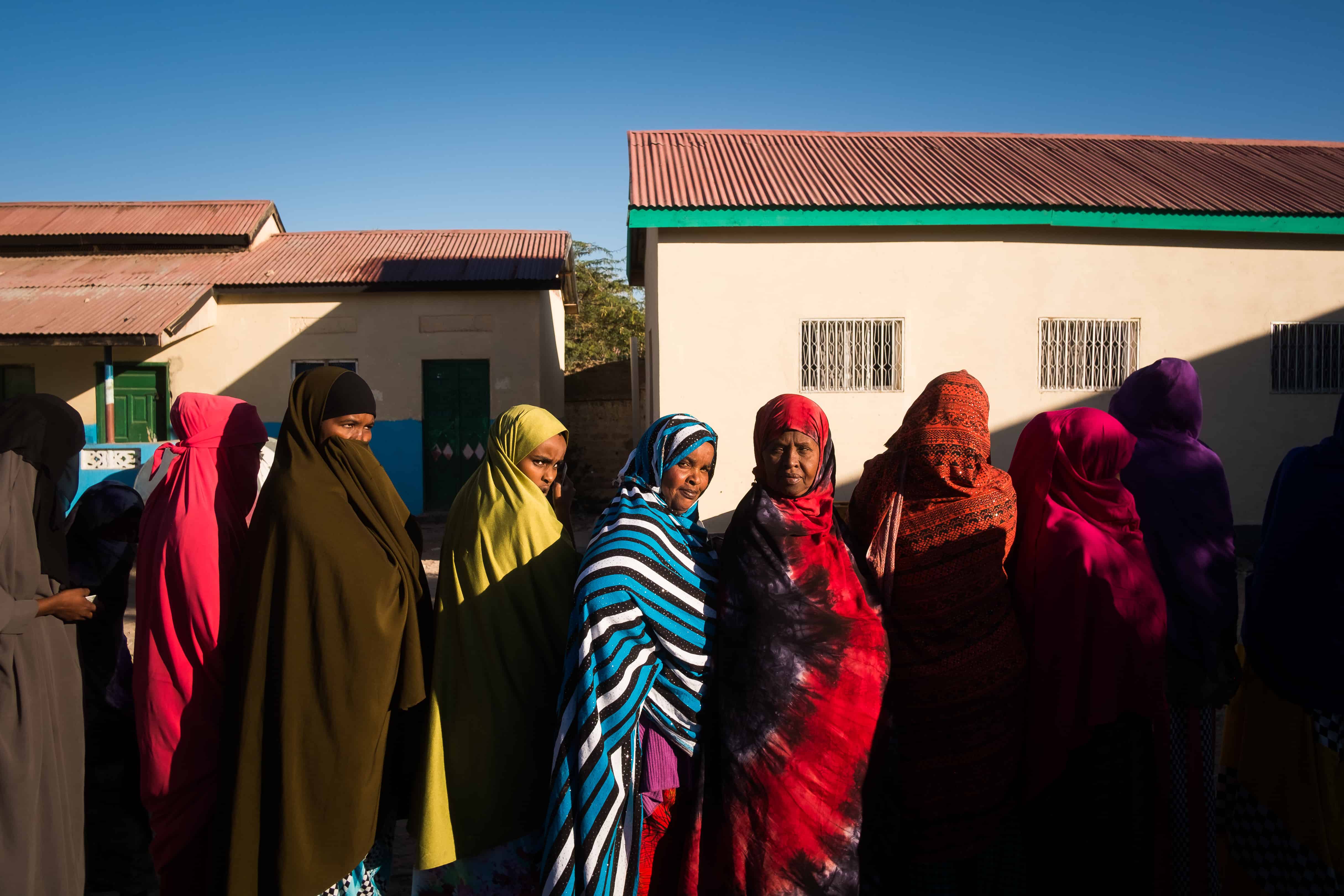
Creative’s Ardo Aden discusses women’s rights in Somalia and the controversial Sexual Offenses Bill
Ardo Aden is a program specialist supporting several activities in Creative’s Democracy, Governance and Electoral Integrity practice area. As a Somali woman, her focus on Bringing Unity, Integrity and Legitimacy to Democracy (BUILD) is as personal as it is professional.
Funded by the U.S. Agency for International Development, BUILD works with Somali civil society, media, and political contestants, providing critical assistance to strengthen electoral systems and political participation in Somalia. BUILD’s work places a strong emphasis on elevating women’s participation in political processes and governance. In 2018, BUILD also supported the passing of the law that criminalized rape and sexual offences in Somaliland.
Ardo’s most recent work has been to support BUILD as it raises awareness around the controversial Sexual Offenses Bill. Yet to be passed, this bill is currently in danger of being undermined by another, less substantial bill that takes the teeth out of legal consequences for sexual violence. In this Q&A, Ardo gives some context for the bill and its status in Somalia, BUILD’s work on the issue, as well as how it fits into the urgent, global fight for the rights of women and girls.
What are some of the key points the public needs to be aware of with this bill?

The Sexual Offenses Bill was carefully crafted over a period of five years in close consultation with key stakeholders including women, CSOs, lawyers and religious leaders, to name a few. It clearly defines and criminalizes violence against women and girls including rape, forced marriage and sex slavery, and increases sentencing for perpetrators if there are accompanying aggravating factors. On the other hand, the Sexual Intercourse Bill reduces rape to a misdemeanor and lessens punishment for other serious sexual offences. For a country already plagued by gender-based violence, the passage of this bill will have devastating effects and essentially normalize violence against women and girls in Somalia.
The SIB has been introduced to legislators in August and since then there has been intense outcry from Somalis and non-Somalis alike from all corners of the globe. A social media campaign called #KillTheBill is urging the federal government to reject the amended bill and pass the original Sexual Offenses Bill. There has also been a corresponding petition circulating which collected over 60,000 signatures. Since there isn’t a lot of visible advocacy around the Sexual Offenses Bill, I would urge the public to continue to take a stand against the Somali federal government and demand its passage.
You’ve been following the controversy around the Sexual Offenses Bill for some time. Why is there a need for it? What have been the main challenges to getting it passed and what’s its current status?
There is an urgent need for this bill because there are currently no laws protecting Somali citizens from any kind of gender-based violence (GBV). News reports show that violence against women and girls has spiked in recent years and is becoming increasingly gruesome and murderous. According to the U.N. Assistance Mission in Somalia, the number of rape cases reported in 2019 in Somalia was 744. 241 of these were confirmed as cases of Conflict-Related Sexual Violence that targeted women and girls. Sexual abuse is widespread in Somalia, but due to the associated stigma, most cases go unreported.
The SOB offers protections against these abuses and sets out clear guidelines for police, investigators and prosecutors to hold perpetrators accountable.
The main challenge to passing the Sexual Offenses Bill has been the misconception that certain articles of the law are anti-Islamic. As a result, the Sexual Offenses Bill has been pending in the lower house of parliament for two years before a heavily amended version of the Sexual Offenses Bill called the Sexual Intercourse Bill was introduced this summer. This new bill, which allows child marriage, doesn’t provide the same kind of protections as the Sexual Offenses Bill and has been condemned by the international community.
Advocating for protections and equal rights for women is seen as a universal cause. In this case, some opponents claim that the bill is anti-Islamic and that is imposes on Somali culture from a Western position. As a representative of a Western organization, respecting a country’s autonomy while fighting for universal protections can be a difficult balance to strike. Can you comment on that tension and how you approach it?
I’m no religious scholar, but I can say with the utmost confidence that Islam is a religion of peace. Islam does not condone abuses against anyone, especially women and girls. The misconception that protecting the rights of women and girls is anti-Islamic is extremely harmful and damaging to the core principles of Islam. Using this falsity to delay passage of a bill is a textbook example of exploiting inaccurate religious ideologies to advance political interests. Here’s a direct quote by BUILD’s partner SHE Associates Inc., a group with experience supporting similar legislation in other Islamic countries. SHE conducted research on the Sexual Offenses Bill in Somalia:
“Upon a technical Islamic review, the Bill in fact does not contradict Islamic teachings, rulings and guidance especially if recommendations with regard to harshening punishments have been taken into consideration. It is in harmony with Islamic teachings.”
I think it’s always important to condemn human rights abuses wherever they are happening, and I commend the international community for doing so in this context. I think there’s a fine line between interfering with a country’s autonomy and actively calling out harmful laws and practices that infringe on human rights.
How is BUILD addressing the sexual offenses bill and what is your role in helping shape the project’s response?
Last year, BUILD worked with several different civil society organizations to first educate them about the content of the bill. BUILD later helped expand these CSOs’ capacity so they could actively advocate for the bill’s passage. This year, I thought it was important for the BUILD project to go further and contribute to the #KillTheBill campaign. By facilitating a discussion to educate the public about the Sexual Offenses Bill and its status, we gave experts a platform to discuss and debunk some of the common misconceptions surrounding the bill.
The event was facilitated by a local Somali woman journalist with panelists that included a lawyer, a medical practitioner and a representative from the Somali government and a CSO. As panelists were very engaged with the Bill and in agreement on most points raised, as a follow up, we’re planning to host a debate and invite folks from both sides of the spectrum, to discuss their opposing viewpoints.
What impact do you hope to see from these political dialogues and awareness events?
I hope these events help raise awareness around the importance of passing the Sexual Offenses Bill in Somalia. As I mentioned earlier, there is not much advocacy or even discussions surrounding these bills on many platforms. A solid first step in this important initiative would be to educate the Somali public about what’s happening before anything else.
In this project, your passion for women’s rights and your job come together. Why is this issue personal to you and what motivates you?
I’ve always been a firm champion and fighter for women rights across the world. This issue hits home for me, as a young Somali woman myself. I have family back in Somalia who are directly affected by these issues. This is and always has been my motivation to continue to speak out and fight against GBV issues, which continue to occur with impunity in Somalia. I have also worked directly with victims of such violence in Ethiopia in the formative stages of my career, and these stories have been as painful as they have been inspiring for me to get engaged.
In this way, supporting BUILD is both personal and professional. I was very happy to hear about success the project has had with similar legislation being passed in Somaliland, even if there have been set backs and was honored to propose and help facilitate the political dialogue event surrounding the Sexual Offenses and Sexual Intercourse Bills at the federal level in Somalia.
How does this bill in Somalia fit into the global narrative around women’s rights and why is that important?
The Sexual Offenses Bill simply protects Somali women and girls from GBV and sets clear guidelines for criminalizing sex crimes. Passing this law would be a win in the collective fight for protecting women and girls from abuse globally. I truly believe that injustice anywhere is a threat to justice everywhere. You can’t support the idea of human rights and equal protections for all without actively defending those very rights. This is not just a Somali issue. This is a global issue that needs to be addressed on a global scale.
